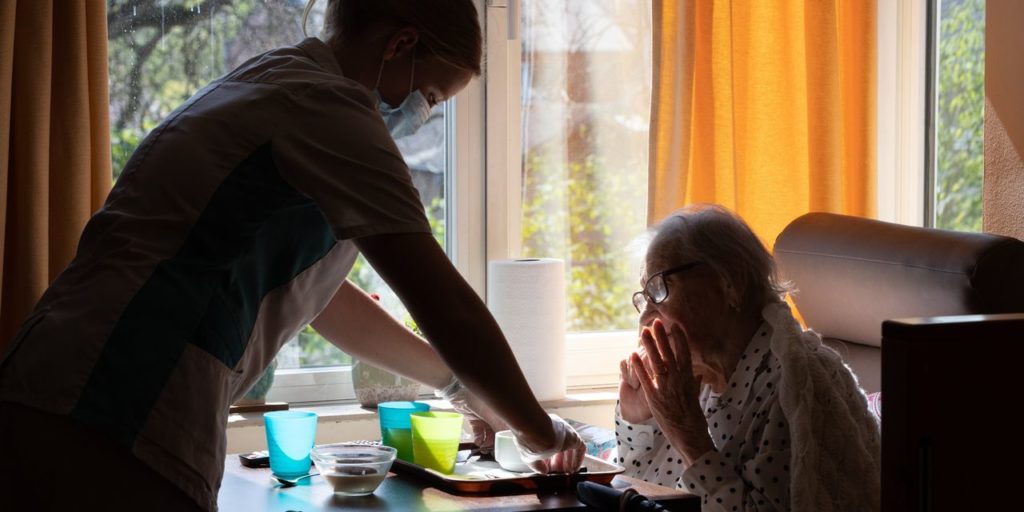The special coronavirus committee of the Flemish parliament yesterday examined a report from the region’s ombudswoman Annelies D'Espallier, which describes the chaos that reigned in care homes during the height of the Covid-19 epidemic.
The service interviewed staff, residents and family members of residents of the care homes in the region, contained in a document of witness statements intended for the parliamentary committee set up to look into the crisis. Unlike the committee of the federal parliament, the Flemish committee has already started work.
“The statements hit hard for everyone here on the committee,” said Lorin Parys (N-VA). Other representatives of the governing parties CD&V and Open VLD echoed that opinion.
Opposition members, meanwhile, turned the witness statements against the government.
“Every statement here repeats time and again that the administration under minister Beke reacted chaotically, that there was no control, mistrust was everywhere, and the government was always running behind the facts,” said Björn Rzoska of Groen, referring to Wouter Beke (CD&V), the region’s health minister.
“The residential care centres had to improvise to fill that gap.”
“Staff and management made every effort to combat the crisis in residential care centres, but the lack of support from the Flemish government in terms of protective equipment and additional staff led to these horror stories,” said Hannes Anaf (sp.a).
The service took statements from 45 witnesses to compile the report, entitled Speaking out from the Silence (Stemmen uit de stilte). Some extracts:
• The care homes were entirely unprepared. “At the very beginning we had an infected person in the house. That turned into a storm and we did not grasp what was coming our way. We lost way too many residents. And it has been very difficult, because we had to work blind.”
• Policy was ad hoc and inconsistent. “Some colleagues started to wear masks on their own initiative. But they were warned that it was not allowed. Later it suddenly became compulsory.”
• Staff were overwhelmed. “One resident was sitting in her underwear, crying in the hallway. Her arm was in plaster. ‘I've been waiting so long for someone to help me get dressed. There's no one here who has time and it's almost lunchtime’ said a volunteer.
• Information was lacking in both directions. “We were not allowed to tell the outside world if there were Covid positives, so as not to get a bad name. To avoid panic, initially we only notified the family of Covid positives and not even all family members.”
• Politicians were nowhere to be seen, one manager said. “When there are floods, they'll be standing in their boots in the water. But I haven't seen any sign of a politician here.”
• Nearly 5,000 residents of care homes died, many without loved ones present. One nurse testified, “The residents were not allowed visitors to the resident, except when the palliative sedation began. Two people were allowed to stay for half an hour, but the resident had not yet died. At that time, a body bag was already underneath him, so that it could quickly be zipped up without risking further contamination. The resident knew she was alone and dying and she also felt very alone. It was a very difficult moment for me.”
• The situation made even the most basic humanity impossible. “When you are old, you know that your years and even your days are numbered,” said one resident. “Your health is always important, but the most important thing is that you can see your children and hold them close. If they take that away, you might actually prefer to be dead.”
Alan Hope
The Brussels Times

